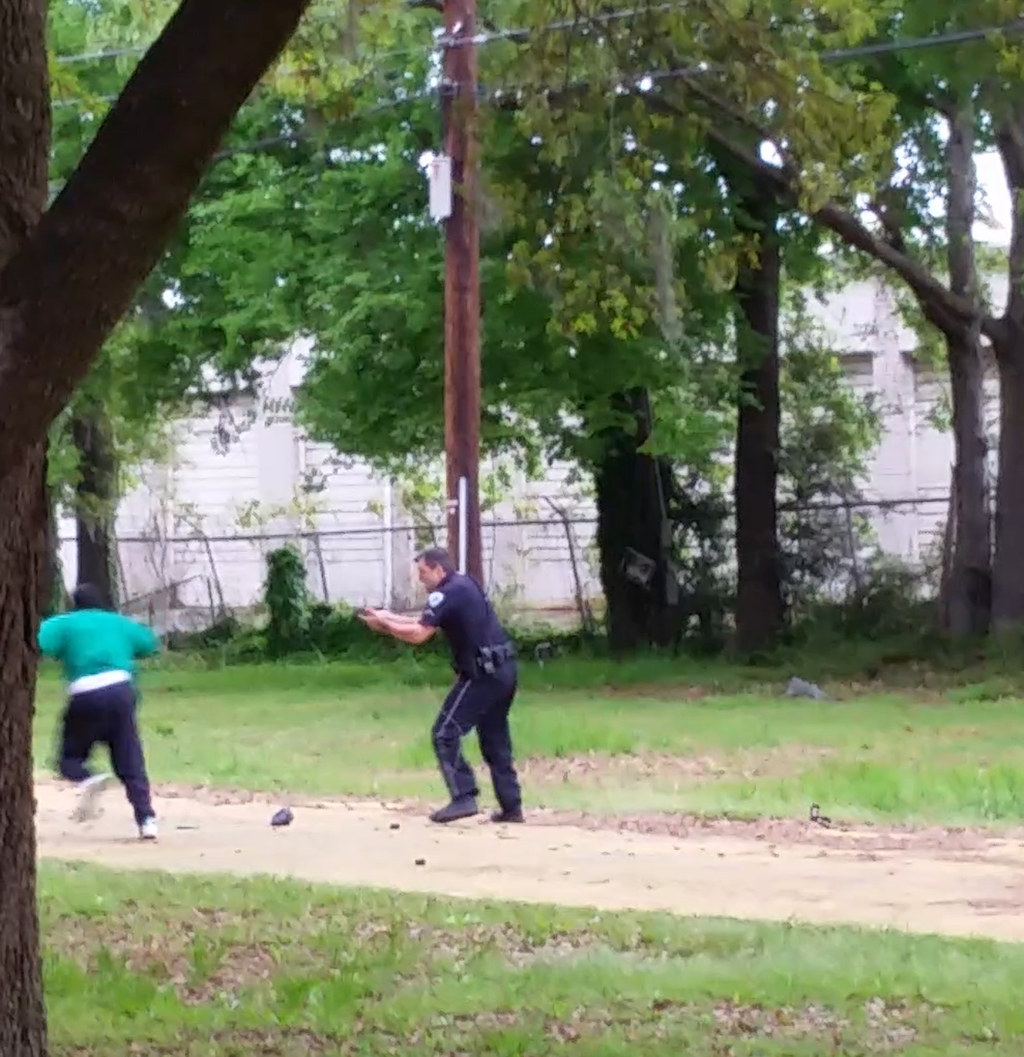
NORTH CHARLESTON, South Carolina — Before a local protest leader took the floor at Thursday night's city council meeting in North Charleston, a packed audience of white and black residents, uniformed and civilians found themselves coming together in a standing ovation for a common cause: the high school girls of North Charleston's powder puff football league.
The first council meeting since the fatal police shooting of Walter Scott began with a presentation by Deputy Police Chief Reggie Burgess discussing the North Charleston department's efforts to build trust in the community. The powder puff league, one of several sports under the police department's Cops Athletic Programs, has been a resounding success, he said.
Officers serve as coaches, as well as mentors to the girls, who represent four high schools. It's a chance for the girls to apply their dedication and strength, and the sports programs also bolster the police department's relationship with the broader community, Burgess said.
"It proves to us that through the kids, we have a better relationship with other parts of the family," he said.
Powder Puff Football about to kick off at North Charleston High School
Since Scott's death, those relationships have been tested. Most people freely say there are good police officers in North Charleston. But the question remains for many residents: How much bad behavior has taken place off camera and never caught?
Matt Rabon, who grew up in the city and has been involved with protests, said the community has had a longstanding divide between white conservatives and others. With that history of systemic problems, Rabon said North Charleston residents have told him in recent days they felt "lucky" the incident was captured on video.
"No one's surprised by this," he said. "It just confirms what people already believed."
On Thursday, locals continued to stop at the grassy lot where Scott was killed. Karen Poinsette used to live in the neighborhood and would often walk along the alley on her way to the bus stop.
"For someone to be walking through here just randomly, that time of morning," she said, "ain't nothing but God."
She said she believed North Charleston police have been working to get to the truth.
But "if there wasn't the video," she said. "The lies the officer told, it's crazy."

Building trust between residents and the department has been an explicit focus in recent years. Since the '90s, the philosophy of community-oriented policing has been embraced around the country. Often abbreviated as COPs, the approach of partnering with the community to be proactive about crime is promoted by the U.S. Justice Department to local forces.
A 2010 COPS newsletter praised the strides made by North Charleston in engaging with residents through a number of programs. At the time the programs were put into place, North Charleston was rated as one of the most violent cities in the U.S.
Crime plummeted, which then-Chief Jon Zumalt attributed to making time to communicate with residents.
"Selling the ideas took some time. We had to change the culture of our policing and make the department more transparent," he told the COPS office.
But at the time, more officers in the community meant aggressive patrols for minor infractions, and black men were most often stopped and questioned, the Post and Courier reported. Other efforts included immersing officers in cultures within their community, and a program called "Sell the Stop," which required officers to say who they were during traffic stops, why they were in the neighborhood, and why the resident was being stopped.
On Thursday, local activists called on the city council to create a civilian oversight board of the police department that could investigate potential misconduct with subpoena power.
"We want to trust [police], so we need to create mechanisms of trust," Muhiyidin d'Baha told the city council.
Mayor Keith Summey agreed to discuss the matter with d'Baha next week.
"We'll have a better dialogue when we meet."
